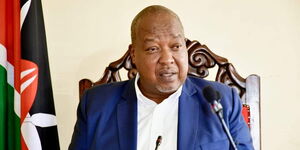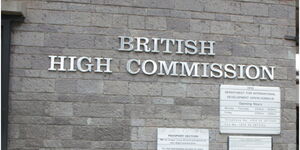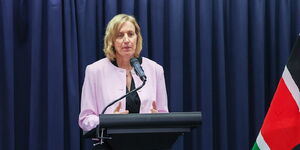In the wake of the government’s move to increase fuel prices, Public Service Vehicle (PSV) operators are now turning to cheaper alternatives.
In its July review, the Energy and Petroleum Regulatory Authority (EPRA) significantly hiked fuel prices, increasing the cost of Super Petrol by Ksh8.99, diesel by Ksh8.67, and kerosene by Ksh9.65.
The fuel price surge has prompted motorists to seek creative coping mechanisms, with some opting to use Liquefied Petroleum Gas (LPG).
According to one taxi driver, he converted his vehicle to run on LPG as a cost-effective alternative, noting that the switch has saved him a considerable amount of money in the long run.
In an interview with Citizen TV, the taxi driver revealed that LPG is cheaper per litre than petrol, allowing him to get more fuel for the same amount of money.
"I decided to convert my vehicle because if you go to the petrol station to fuel using Ksh1,000, you will be given five litres, but if you go to a gas station with the same amount, you will get eight litres of LPG," said the taxi driver.
"When you do the math, you will realise that you earn more money while using gas compared to petrol, because during consumption, gas takes you a longer distance than petrol," he added.
LPG conversions create a dual-fuel system, meaning the car can run on either petrol or gas. The system allows the driver to switch seamlessly and conveniently between the two.
The main challenge with the innovation is that refuelling with LPG has only been adopted by a few filling stations, forcing drivers to travel long distances to access viable refuelling facilities.
The latest development comes amidst outcry by motorists who have accused President William Ruto's administration of alleged exploitation, terming the increase in fuel prices as unjustified.
In a statement on July 17, the Motorists Association of Kenya (MAK) expressed its disappointment over the government's move to increase fuel prices despite a drop in oil prices in the international market.
"This abrupt hike price of Super Petrol by Kes 8.99 and Diesel 8.67 per litre on both petrol and diesel by the Ministry of Energy caught motorists completely by surprise," the motorists said.
"When world prices were dropping, EPRA reduced local prices by a paltry one shilling, insulting the millions of motorists who already sustain this government through oppressive taxation. Today, half the cost of fuel is made up of taxes, which is economically destructive and morally wrong," they added.












